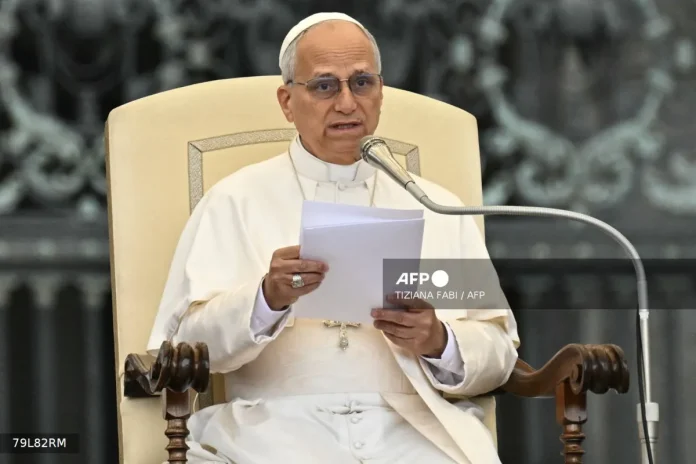Pope Leo XIV criticises inhuman migration measures and pharmaceutical profits in wide-ranging speech addressing global ethical concerns.
VATICAN CITY: Pope Leo XIV has repeated his criticism of increasingly inhuman measures used to stop illegal immigration.
The pontiff defended sea rescue operations just one day after a deadly shipwreck occurred in the Mediterranean.
In a comprehensive speech delivered to grassroots organisations, the US-born pope also criticised the pharmaceutical industry.
He additionally warned about the damage caused by the global competition for critical minerals.
The pope acknowledged that states possess the right to protect their borders while having a moral obligation to provide refuge.
He stated that the abuse of vulnerable migrants represents grave crimes committed or tolerated by the state rather than legitimate sovereignty exercises.
“Ever more inhuman measures are being adopted – even celebrated politically – that treat these ‘undesirables’ as if they were garbage and not human beings,” he declared.
Pope Leo specifically defended rescue missions at sea following a shipwreck off Tunisia that claimed 40 migrant lives.
He emphasised that rescue operations and humanitarian projects represent living the Gospel rather than serving any ideology.
The leader of the world’s 1.4 billion Catholics also addressed the United States opioid crisis.
He criticised pharmaceutical companies for promoting pain medications that could lead to patient dependence.
“The spread of new synthetic drugs, ever more lethal, is not only a crime involving trafficking of drugs, but really has to do with the production of pharmaceuticals and their profit, lacking a global ethic,” he stated.
The pope further warned about the dangerous conditions surrounding strategic mineral extraction for electronics.
He noted that mining operations often depend on paramilitary violence, child labour, and population displacement.
Pope Leo specifically identified lithium competition as representing a grave menace to poor nations’ sovereignty and stability. – AFP








